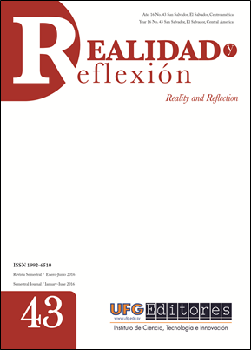Students and teachers who use smartphones and other educational technologies in university classrooms to improve the process of teaching and learning
DOI:
https://doi.org/10.5377/ryr.v43i0.3547Keywords:
learning, technology, smartphone, social networksAbstract
Students do not pay attention in class because of lack of motivation on the part of professors and another factor contributing to the neglect is the proliferation of smartphones. Distraction increases with the use of these phones.
The research is focused on addressing the importance of educational technologies, which can be used for the generation of teachers who are not yet aware of its use. Many do not handle them for lack of interest, because other universities have not seen the importance in the process of teaching and learning. Students are those who are connected to the Internet in the classroom, which is why we must analyze the proper use of this network and its consequences.
The arguments are also presented through a qualitative and quantitative research on the use of technological devices in the classroom. In high school they have conducted research on the misuse of smart phones or other devices. In college same thing happens, only that in school or other degrees, there are more restrictions on the part of teachers and the authorities of the institutions. In university classrooms, however there is more freedom, students are free to connect to wifi. connections, all this makes it easier to connect.
The research was conducted at four universities: Universidad Francisco Gavidia, Universidad Tecnológica de El Salvador, Universidad Modular Abierta y Universidad de El Salvador.
Realidad y Reflexión Año 16, No 43 Enero-Junio 2016: 21-40
Downloads
1484
Downloads
Published
How to Cite
Issue
Section
License
© Universidad Francisco Gavidia
Instituto de Ciencia, Tecnología e Innovación (ICTI)
Reality and Reflection
The content and opinions expressed in the publication are the responsibility of the authors of the published articles. The authors assign the publishing and publishing rights, in printed and digital version, to the Universidad Francisco Gavidia.
Proof of originality and assignment of publication rights
The authors must sign a certificate in which they indicate that the text presented for publication is original, unpublished and that it has not been sent for review in another academic publication; In turn, the authors assign the rights of publication and publication to Francisco Gavidia University. The format of this record will be sent through the emails: editores@ufg.edu.sv and jlozano@ufg.edu.sv
The journal Reality and Reflection is housed in the institutional dissemination platforms (web page and in the repository), as well as in databases and other pages of scientific dissemination. The publications of the Francisco Gavidia University are subject to the Salvadoran copyright law, contemplated in the Intellectual Property Law https://www.asamblea.gob.sv/
The content of the work is the sole responsibility of the author, therefore, if for any reason or reason, direct or indirect, the Editor is obliged to pay any compensation to a third party derived from the work of the author, whether it is established in a transaction, agreement or final or enforceable judicial sentence, the Editor may repeat against the Author for the total amount of compensation, plus adjustments, interests and costs that correspond.
It will be the obligation of the UFG to grant five copies of the publication which will be delivered at the UFG Editores headquarters in San Salvador.

